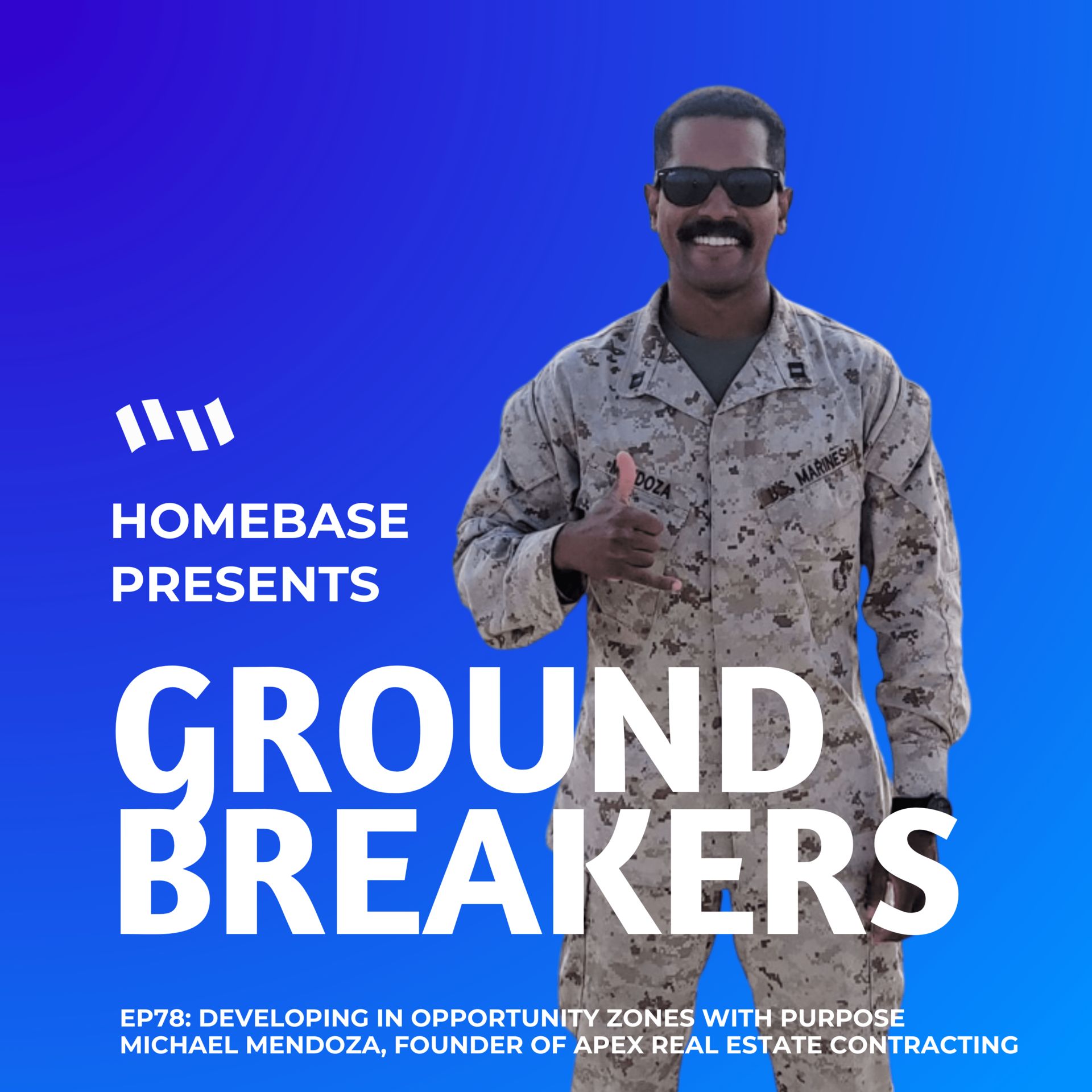- The Raise Report
- Posts
- How a Former Marine Is Using Opportunity Zones to Build a $1B Community From Scratch
How a Former Marine Is Using Opportunity Zones to Build a $1B Community From Scratch
Michael Mendoza is combining modular construction, tax incentives, and AI tools to develop 1,562 acres in rural Colorado, and he’s doing it with long-term LPs in mind.
Hey there, Domingo here 👋
Welcome to The Raise Report — where we break down how top real estate sponsors are raising capital and scaling their portfolios. I also occasionally share the exact playbooks we used at Homebase to build an investor base from zero to over 3,500.
Quick background on me: Before Homebase, we were syndicators too. We didn’t come from institutional backgrounds or deep-pocketed networks. We crowdfunded two deals, went viral twice, and built something that worked. Today, we help other sponsors do the same — streamlining capital raises, back office ops, and investor communication.
This week we’re featuring a Colorado-based developer who is combining modular construction, tax incentives, and military precision to rebuild entire communities.
Michael Mendoza is a U.S. Marine Corps veteran and founder of Apex Real Estate Contracting. He’s leading one of the most ambitious Opportunity Zone developments in the country, with a 1,562-acre project blending modular housing, senior living, commercial retail, and data centers into a single master-planned community.
Here’s how he’s doing it, and what you can take from his strategy.
From War Zones to Opportunity Zones
Michael Mendoza didn’t follow the traditional real estate playbook. He’s a Marine veteran turned institutional asset manager who worked on over $275M in real estate deals before launching his own firm, Apex Real Estate Contracting.
His thesis is bold and simple:
Most developers overlook rural areas. But with the right team, the right tech, and the right capital stack, they might be the best development opportunity of the next decade.
So Michael acquired 1,562 acres in Canon City, Colorado and is now building Four Mile Ranch — a massive, multi-phase project inside a Qualified Opportunity Zone.
His vision: a modular, mixed-use community with zero capital gains tax for his investors.
The Play: Master-Planned OZ Communities Powered by Modular and AI
Michael Mendoza isn’t flipping apartments. He’s building entire communities from scratch — and using Opportunity Zones, modular housing, and AI to do it faster and smarter.
His first project, Four Mile Ranch, is a 1,562-acre mixed-use development in rural Colorado with:
Modular single-family and multifamily housing
Senior living and wellness-focused amenities
Commercial and flex space
A media production studio and data center
Integrated zoning, infrastructure, and public-private partnerships
What makes it work is how he stacks:
Long-hold LP capital with OZ tax benefits
Prefabricated housing to reduce cost and time
AI agents that manage legal, compliance, and deal tracking across a 10+ year timeline
This isn’t a one-off deal. It’s a blueprint for building $1B+ communities in places most developers overlook.
Why This Works
1. He’s working with permanent tax incentives
The Opportunity Zone program allows investors to defer and eliminate capital gains taxes if they hold for 10 or more years. That’s a powerful alignment mechanism for large-scale, long-term projects like this one.
2. He’s using modular to compress time and cost
Modular units let Michael build in phases, reduce construction timelines, and lower capex volatility. That’s a major edge in rural markets with fewer contractors and higher logistical risk.
3. He’s using AI to automate legal and operational complexity
Michael built a suite of AI agents to manage legal contracts, track deal structures, and reduce human error over a 10 or more year buildout. It’s like having a virtual legal department and operations chief rolled into one.
The Risks (and How He Manages Them)
Opportunity Zone compliance is complex:
Regulations are dense and constantly changing. Michael works with top OZ attorneys and trains AI agents on compliance logic to reduce risk.
Rural markets carry uncertainty:
Canon City is not Denver or Austin. But Michael picked a location with political support, a public golf course, and local incentives. Entitlement risk is low, and the upside is real.
Team bloat and distraction:
Michael keeps a team of three and augments with dozens of AI agents. His mantra: stay lean, stay focused, and don’t chase shiny objects.
What You Can Learn (and Steal)
1. Use Opportunity Zones to de-risk, not just save on taxest
Michael sees OZs as a fundraising and strategy advantage, not just a tax hack. If you’re building something that requires time and trust, this is a cheat code.
2. Modular construction is a scalability unlock
This isn’t a niche play anymore. Michael uses modular to build faster, more affordably, and with fewer headaches. More sponsors should be looking here.
3. AI can handle your back office today
From legal workflows to investor tracking, Michael is using AI to create scalable, error-resistant systems. This is the next frontier for lean real estate teams.
Listen to the full episode
In it, we cover:
Michael’s transition from the Marine Corps to managing institutional capital
The full strategy behind Four Mile Ranch
How he structured his LP capital stack
Why he believes AI and modular are the future of development
The biggest lessons he’s learned from building in overlooked markets
Sponsored by Homebase
Homebase powers $80M+ in real estate syndications. Streamline your fundraising, investor management, and distributions today. Schedule a demo
”Homebase helped me raise $3M in 2024 and already $2M in 2025—plus saved me 100+ hours setting up my deals. It’s become the true ‘home base’ for my capital raising and investor experience.” - Jarek Chu, Haven Residential

Domingo Valadez
Homebase
Co-Founder & CEO
